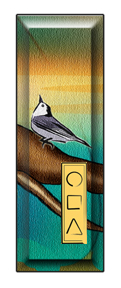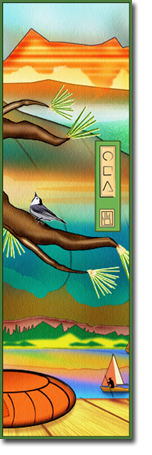On The Way: The Daily Zen Journal
Kalama Sutra
Buddha
Kalamas, you ought to question, you ought to wonder; your doubts have arisen concerning things you should question. Come, Kalamas,
do not accept (or reject) something as true merely because of oral tradition;

do not accept (or reject) something as true merely because of customary practice;
do not accept (or reject) something as true merely because of scriptural citation;
do not accept (or reject) something as true merely because of logical inference;
do not accept (or reject) something as true merely because of reasoned deduction;
do not accept (or reject) something as true merely because of thinking according to appearances;
do not accept (or reject) something as true merely because it holds up to (or goes against) one’s views;
do not accept (or reject) something as true merely because the speaker appears (or does not appear) credible;
do not accept (or reject) something as true merely because the speaker is (or is not) one’s teacher.
Kalamas, whenever you yourselves know that these things are unwholesome; these things are harmful; these things are criticized by the wise; and when practiced according to their own standard, these things bring suffering and have no benefit, then you ought to abandon such things.

Kalamas, how do you regard the following: When greed arises in someone does it arise for their benefit or not?
“Not for any benefit.”
When that person is greedy, when greed dominates, when greed overwhelms the heart, he may kill, steal, commit adultery, lie, and encourage others to behave in such ways, which are actions leading to suffering and are without benefit for a long time, is that not right?
“That is true.”
How do you regard the following: When hatred arises in someone, does it arise for their benefit or not?
“Not for any benefit.”
When that person is hateful, when hatred dominates, when hatred overwhelms the heart, she may kill, steal, commit adultery, lie, and encourage others to behave in such ways, which are actions leading to suffering and are without benefit for a long time, is that not right?

“That is true.”
How do you regard the following: When delusion arises in someone does it arise for their benefit or not?
“Not for any benefit.”
When that person is delusory, when delusion dominates, when delusion overwhelms the heart, he may kill, steal, commit adultery, lie, and encourage others to behave in such ways, which are actions leading to suffering and are without benefit for a long time, is that not right?
“That is true.”
How do you regard the following: Are these things wholesome or unwholesome?
“They are unwholesome.”
Are they harmful or not harmful?
“They are harmful.”

Do the wise censure or praise them?
“The wise censure them.”
After one practices according to their standards, do they lead to suffering and are of no benefit, or the opposite?
“After one practices according to their standards they lead to suffering and are of no benefit.”
(The Buddha repeats the ten bases for unwise acceptance and rejection again.)
Kalamas, whenever you yourselves know that these things are unwholesome, are harmful, are censured by the wise, and when practiced according to their own standard bring suffering and have no benefit, then you ought to abandon these things.
(The Buddha repeats the ten bases again and then asks the same questions about non-greed, non-hatred, and non-delusions, which the Kalamas answer appropriately.)
Kalamas, whenever you yourselves know that these things are wholesome, are harmless, are praised by the wise, and when practiced according to their own standard bring happiness and are beneficial, then you ought to dwell with these things.
Buddha from The Numerical Discourses of the Buddha





The Buddha traveled on foot throughout India teaching outside the villages.
The Kalama Sutra recounts his interaction with the Kalama clan who brought questions to him. There were many holy men who traveled throughout the land proclaiming their views and decrying the teachings of others; the people asked the Buddha how they were to know which teaching to follow. His sermon offered a clear guideline and encouragement to see for oneself.
Buddha brings them back to their own clear eye of discrimination to give them a skill set to discern truth from distraction. The sutra is famous for its bold encouragement of free inquiry in order to free them from fanaticism, dogmatism, and blind acceptance.
Why this teaching now? Well, we “moderns” fall into the same traps in following a Way as everyone throughout time has. The most challenging part of this journey is to keep our lights on; so many would prefer to be just given a set of rules to follow, things to think that are the “correct” way to see.
What strength and commitment it takes to attempt to see for oneself. And at the core of Buddhism, we are being asked to see for ourselves, to experience firsthand, not through another’s pronouncements of how things are. So, this remains very contemporary advice for us also!
And foremost, we get to see how the Buddha himself engaged his listeners to come to their own conclusions.
Sweeping away the leaves of distraction.
Elana, Scribe for Daily Zen